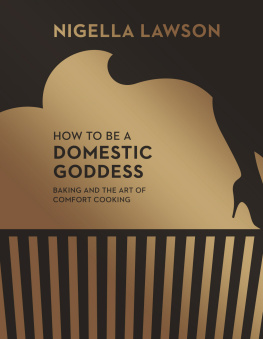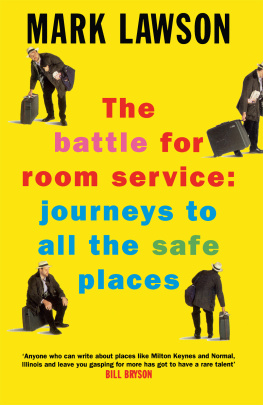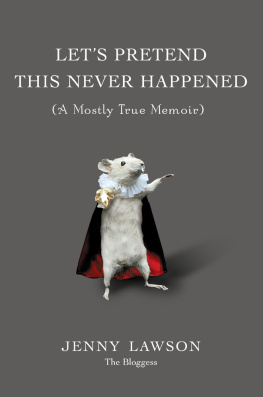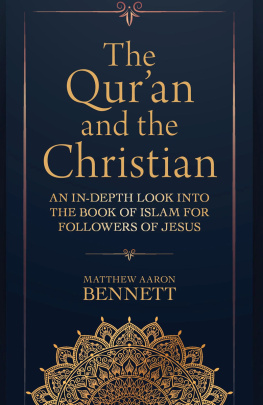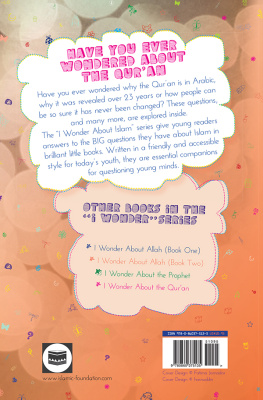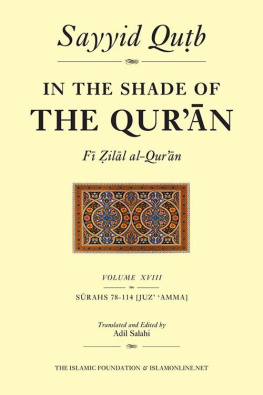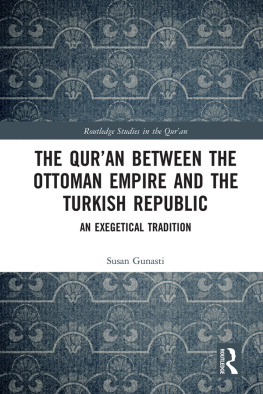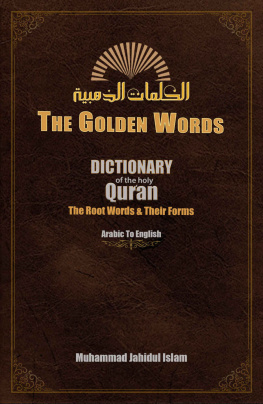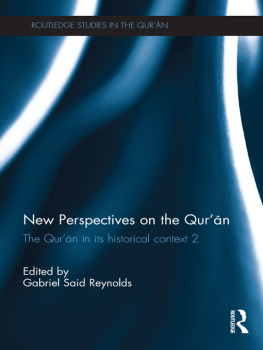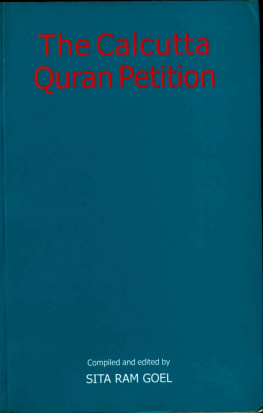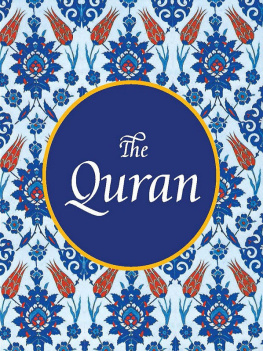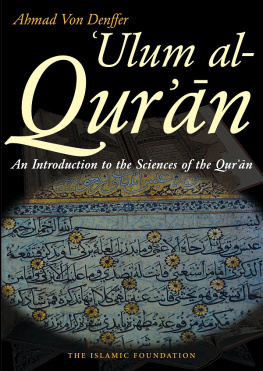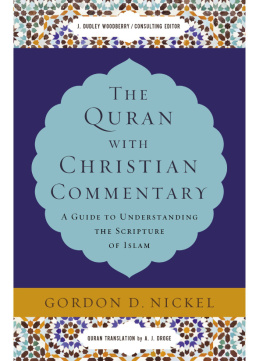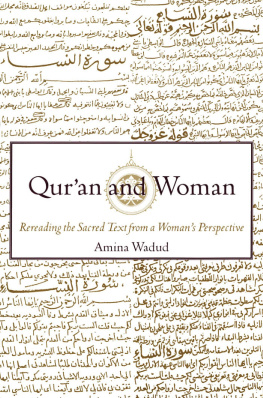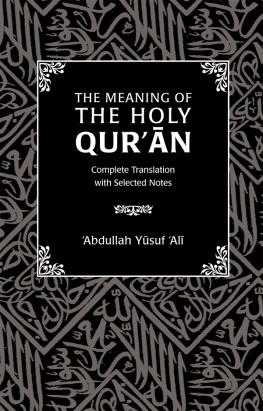More Praise for
The Quran: Epic and Apocalypse
Infuses the field of Quranic Studies with a breath of fresh air The avenues of interpretation that the work opens up have the potential to occupy generations. Not only does Lawsons contribution show how both Muslims and non-Muslims can participate meaningfully in reading the Quran, the work is a vivid reminder of a prophetic saying on the virtues of the Quran: its wonders will never cease, and scholars will never be satiated by its study.
Mahan Mirza, Professor of the Practice, Contending
Modernities, Kroc Institute for International Peace Studies,
Keough School of Global Affairs
In this rich and erudite study of the epic and apocalyptic aspects of the text, Lawson adopts and elucidates many of the habits of ancient readers, and the result is a greater appreciation for the Qurans sweeping aesthetic, literary and spiritual grandeur. The Quran: Epic and Apocalypse is also invaluable for its deep engagement with recentscholarship, and its venturesome analyses of minoritarian Muslim exegetical works. Like a thoughtful and generous conversation partner, Lawson asks interesting questions, avoids dogmatic scholarly or religious statements, and leaves us with a lot to think about.
Kristin Zahra Sands, Professor of Islamic Studies,
Sarah Lawrence College
offers numerous fresh and important insights regarding Islams most sacred text. Grounded in meticulous analysis of the Qurans religious and literary dimensions, this volume takes an entirely new direction in identifying and studying its epic and apocalyptic qualities. It is a must read for anyone interested in comparative religious studies, or indeed in cultural and literary history.
Sebastian Gnther, Professor and Chair of Arabic and
Islamic Studies, University of Gttingen
By attending to the Qurans epic as well as its apocalyptic voice, Todd Lawson proposes to liberate Western readings of Muslim scripture from their current obsessions. It is difficult to imagine a timelier or more necessary scholarly intervention. And when the Quran finally acquires the audience it deserves, i.e., one capable of bracketing theological pre-commitments (pro or con) and appreciating it for the re-visionary work ofliterature that it is, Professor Lawsons book will be recognized as a major contribution towards that long overdue cognitive shift.
Peter Matthews Wright, Associate Professor and
Chair, Colorado College Department of Religion
About the Author
Todd Lawson is Emeritus Professor of Islamic Thought at the University of Toronto. He has taught in the field of Islamic Studies for over forty years and published numerous books and articles in Quranic Studies and related topics. He lives in Montreal.
For Bahiyyih, Ludovic & Shelby
Contents
We shall show them Our signs in every realm of the natural world and in their own souls until it becomes clear to them that this is the Truth.
Is it not enough that your Lord witnesses everything?
(Q41:53)

Divine grace comes to the help of a man menaced by earthly confusion and ruin this is the framework of the vision.
Erich Auerbach, Figura
T he Quran belongs to humanity and to the reading experience of humanity. This is part of its self-definition. We attempt to look at some of the religio-aesthetic workings of meaning generation in the book to help understand why it is so loved and to help us navigate what is frequently a very challenging text. By isolating the epic and apocalyptic dimensions of the Quran it is hoped that such familiar concepts and categories will aid the interested reader, especially the one who wishes to understand Islam and Muslims and sees in this understanding a way to neutralise the poisonous spew about Islam to which we are all steadily subjected through broadcast news, newspapers and government communiqus. Muslims are nearly one quarter of the population of the planet, after all. It makes sense that their central sacred text should be read and understood by their fellow earthlings. It is also hoped that the approach offered here will be of interest to Muslims themselves who may also see its potential as a bridge between literary and religious cultures and perhaps even a stimulating perspective from which to encounter this sacred text.
In the process of describing the overall coherence of the Qurans message as epic and apocalypse we do not wish to suggest that such exhausts the meaning of this extraordinary book. However, it may open otherwise unrecognised doors to the richness of the Quran. Some of the sub-topics that will recur from time to time are: covenant, divine glory, divine presence, divine signs, an apocalypse of reunion and recognition, typological figuration and, of course, revelation. These are, it is hoped, discussed below in a way that opens the text to a wider readership among people of all religious persuasions and none. No book has had a greater impact on the history of humanity and the development of world culture. I think it is not an exaggeration to say that to make it part of the educated global citizens reading what used to be thought of as soul formation is a desideratum of some urgency.
THE QURAN AS EPIC
Whatever else an epic does for a culture or a community, it provides a dictionary for the language of self-identity, of mythography, and the broader cultural code. The epics we are familiar with: The Iliad , The Odyssey , Gilgamesh, The Aeneid , The Shahnameh , The Divine Comedy , Paradise Lost , The Marriage of Heaven and Hell , Ulysses and Finnegans Wake are all distinguished by an explicit and self-consciously contiguous (if sometimes difficult-to-follow) narrative theme. Much the way the combined Old and New Testaments have come to be seen as the great code of Christian/Western culture, the Quran has for long been seen as such for Islamic/Islamicate culture, even if this understanding has not been made explicit. In this instance, the Quran may be compared to a musical improvisation upon a familiar melody, which is sometimes present, sometimes alluded to or echoed, and sometimes present by being completely absent aniconic.
The much remarked atomistic, discontinuous, fragmentary approach to the Quran which seems to be celebrated in the standard tafsir corpus notwithstanding, it is clear that Islam and Muslims nonetheless acquired and developed a coherent notion of who they were and are, and that the title of Hodgsons famous trilogy The Venture of Islam does indeed say something important and accurate about the history of Islam and the culture it produced: it could just as easily have been called The Epic of Islam. It is possibly from the vista supported by the unassailability of this epic certitude, triumph and attendant cultural confidence that the atomisation of the Quran in tafsir was seen as utterly harmless nonthreatening, and perhaps simply expressed a pure, vertical, scientific desire to come to terms with and explore the sacred epic ethos at what might be thought a narratologically molecular level.
As scripture the Quran fulfils many roles and functions, as text it is possible to think of it as a distinctive cornucopian text, containing within it many different genres, all somehow united and made to cohere through two opposing literary energies: 1) that of apocalypse and 2) that of epic.



